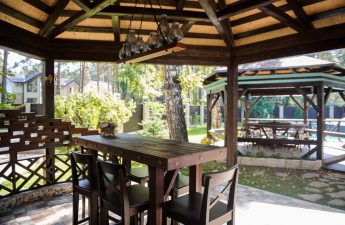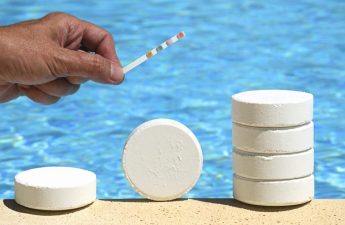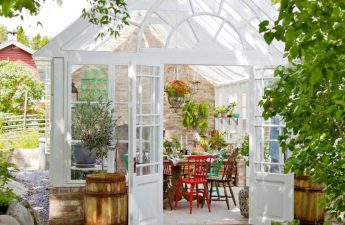The pond is a place of coolness and relaxation, looking atwhich you can get good emotions. How to properly care for it in the summer? An artificial pond on a personal plot helps to restore mental balance and strength, creates a comfortable, relaxing atmosphere. In summer, a pond is a real earthly oasis. It would seem, feed the fish and enjoy its beauty. But if you do not want the garden pond to turn into a swampy, foul-smelling puddle, it is necessary to maintain cleanliness in it during this period.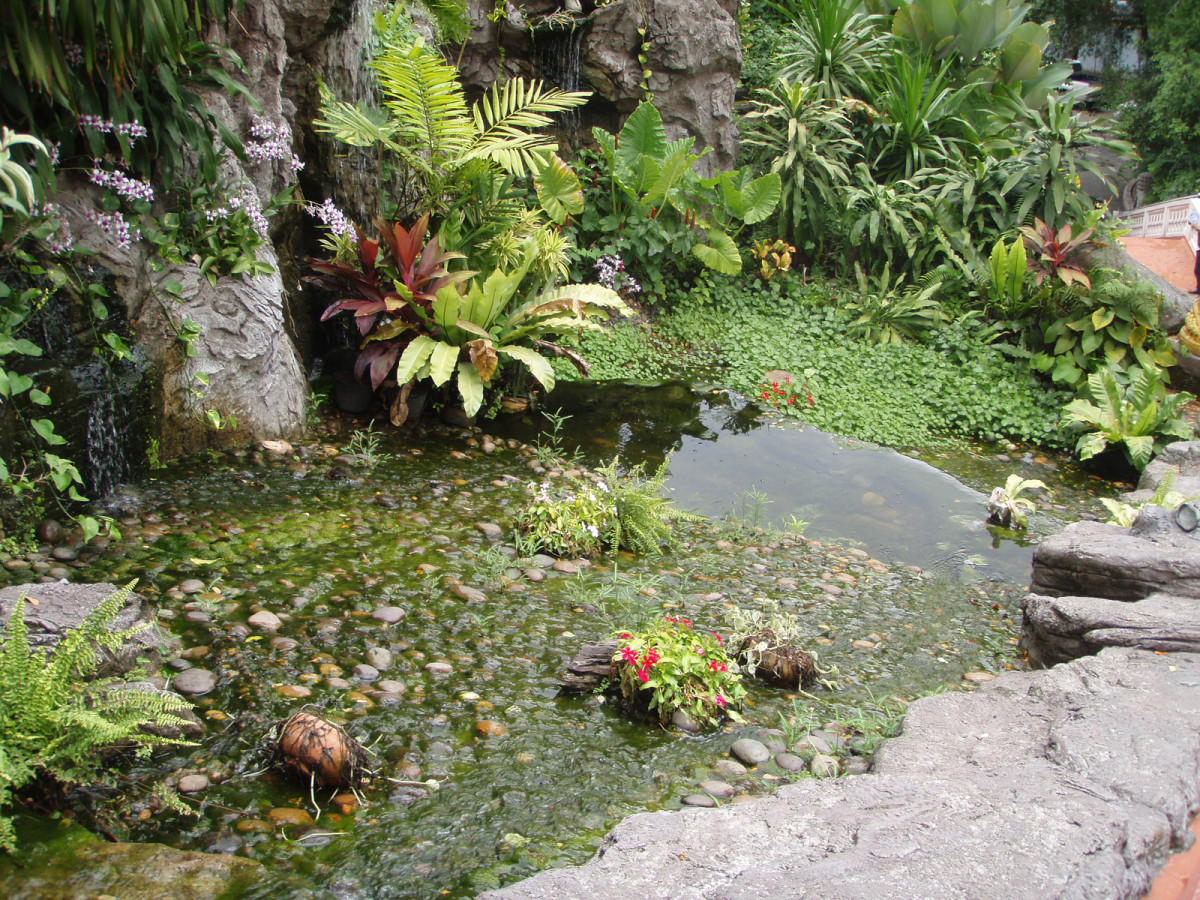
We monitor the water level
In summer, be sure to monitor the water level.Heat promotes rapid evaporation, especially in a small pond. Therefore, it is necessary to top up the water weekly to the required level. Due to the lack of oxygen, the water in the pond stagnates, and violent blooming begins. Therefore, constant water exchange is required. In order not to harm the inhabitants of the pond, add settled, sun-warmed water, and preferably rainwater, not from the tap. At the same time, it should be poured slowly, in a thin stream. If the water level drops quickly, check if the container is leaking. Our opinion If possible, replenish the water supply of your pond from a natural reservoir. If there are diving beetles, daphnia and other insects in it, great: they will become good helpers in the fight against blooming.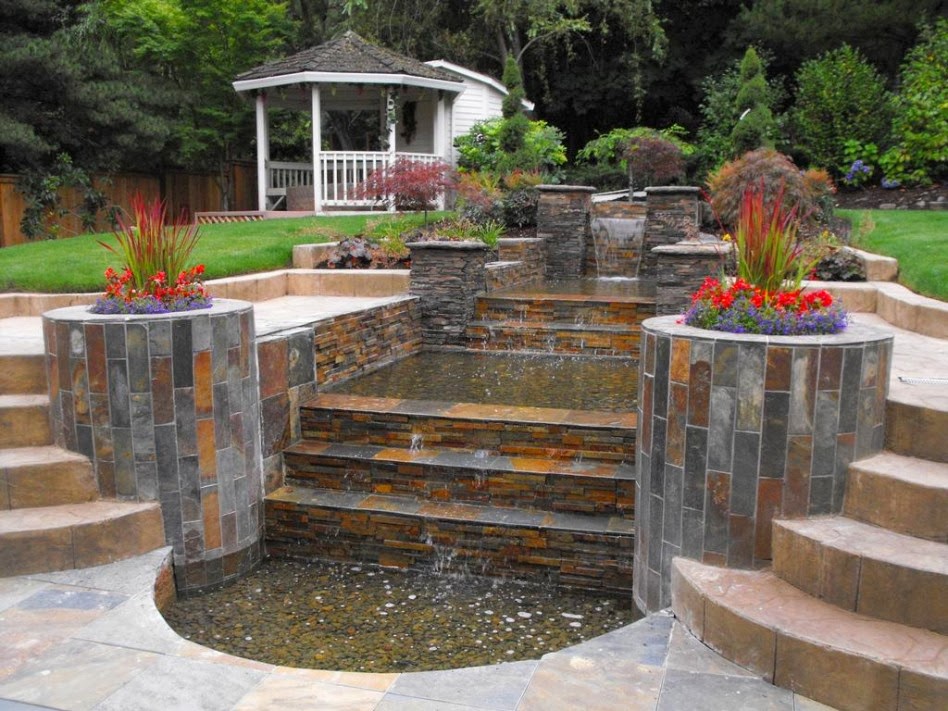
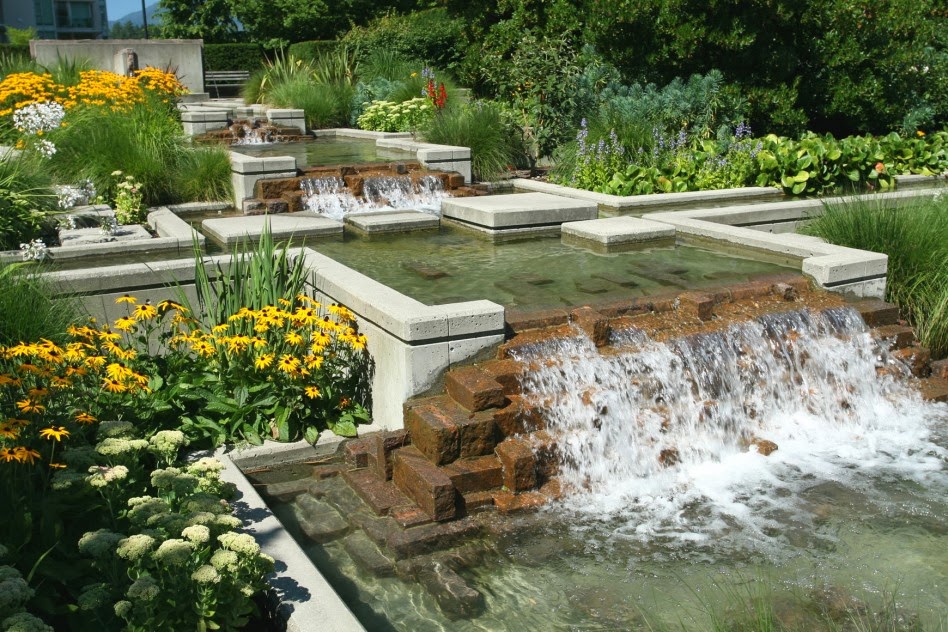
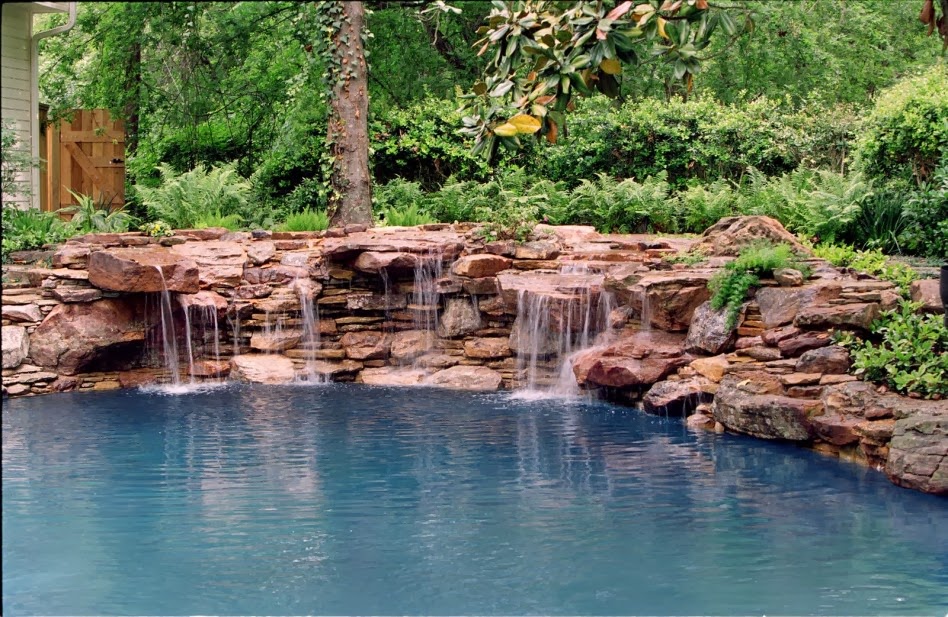
Cleaning the garden pond
Pests of artificial reservoirs are considered to befilamentous algae, azolla (water fern) and duckweed. They grow quickly in hot weather. If you don’t get rid of them in time, they will spread throughout the pond, and a musty smell will appear. Remove large clusters of these plants with a fan rake. Peat tablets that acidify the water can stop the growth of algae. Catch garbage, pollen, dirt and small debris with a net with a long handle. Trim the branches of trees growing near the pond in a timely manner, otherwise fallen leaves will pollute it. In the summer, clean the bottom of the pond once a month. There are systems for cleaning water and enriching it with oxygen in artificial reservoirs: filters, pumps, skimmers (preparations for removing leaves and debris from the surface of the water), water vacuum cleaners, a device for cleaning the bottom of the pond, UV sterilizers. They make it much easier to care for an artificial reservoir. If you have fish in your pond, do not turn off the pump in the summer to maintain the oxygen level they need. Our opinion Poultry and some fish like to eat small duckweed leaves. Get a couple of ducks or carp and crucian carp, breed snails: they will do a great job of cleaning the pond. Natural orderlies such as crayfish will also help you in the fight against duckweed. They eat various organic remains and algae. They need shelter in the form of a snag and a couple of large stones. And thanks to the crayfish, you will be provided with clean water saturated with oxygen.
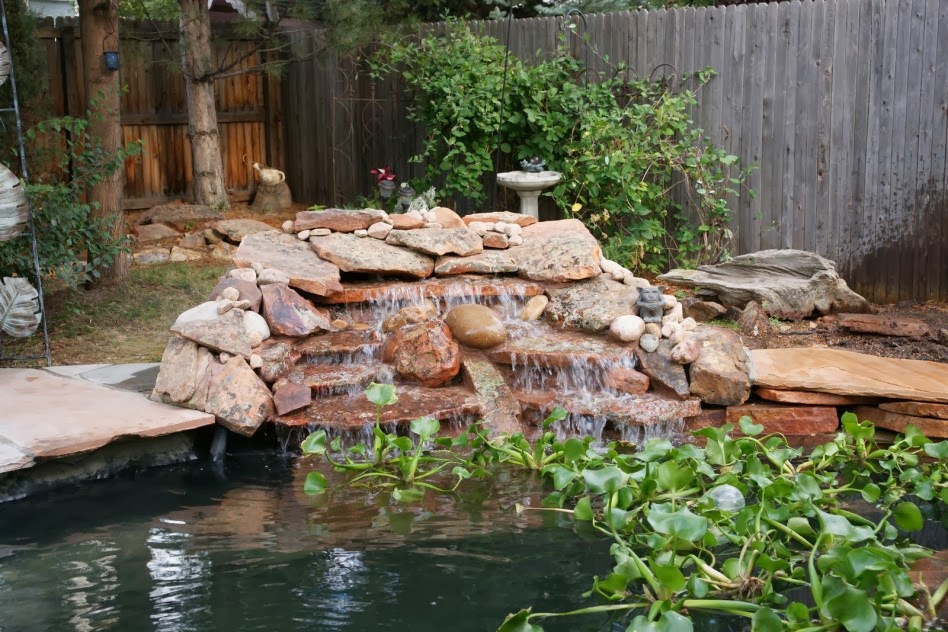
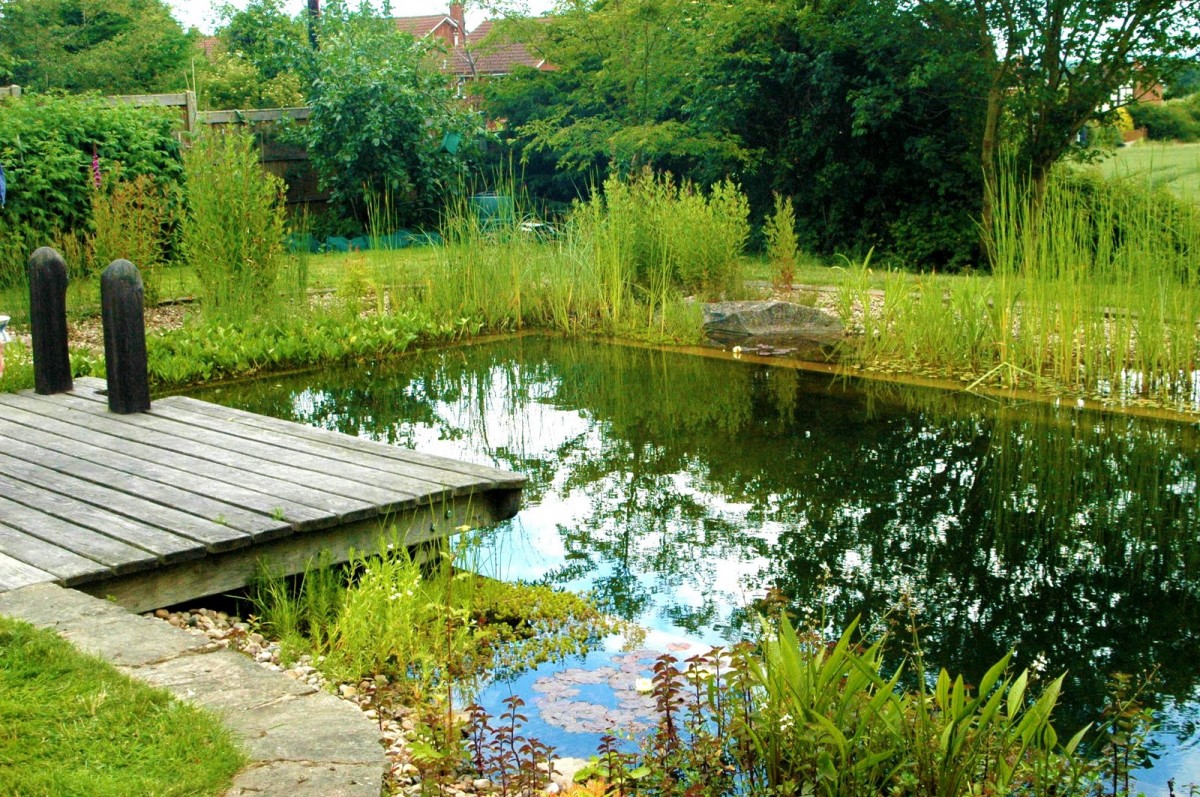
Getting rid of insects
High humidity, high temperature andPoor oxygen circulation in the water creates ideal conditions for the life of insects. Use the simplest and safest method in the fight against pests - wash them off with water from a hose. Do not use a strong pressure: this way you will remove dust from the leaves, do not harm the inhabitants of the pond and wash the insects into the water, where they will become live food for the fish. By the way, feed the fish so that they eat everything at once, and no garbage (a treat for insects) forms on the surface. It is better to give food more often, in small portions. Still water is considered the most favorable environment for the reproduction of mosquitoes. Therefore, a stream flowing into a garden pond, or a fountain are great for fighting them. Our opinion If you cannot organize a constant water exchange, a broom made of branches of deciduous trees will help get rid of larvae. Tear them off, immerse them in water and make several sharp movements. And also settle a toad in the pond: it will rid it of mosquitoes and midges.

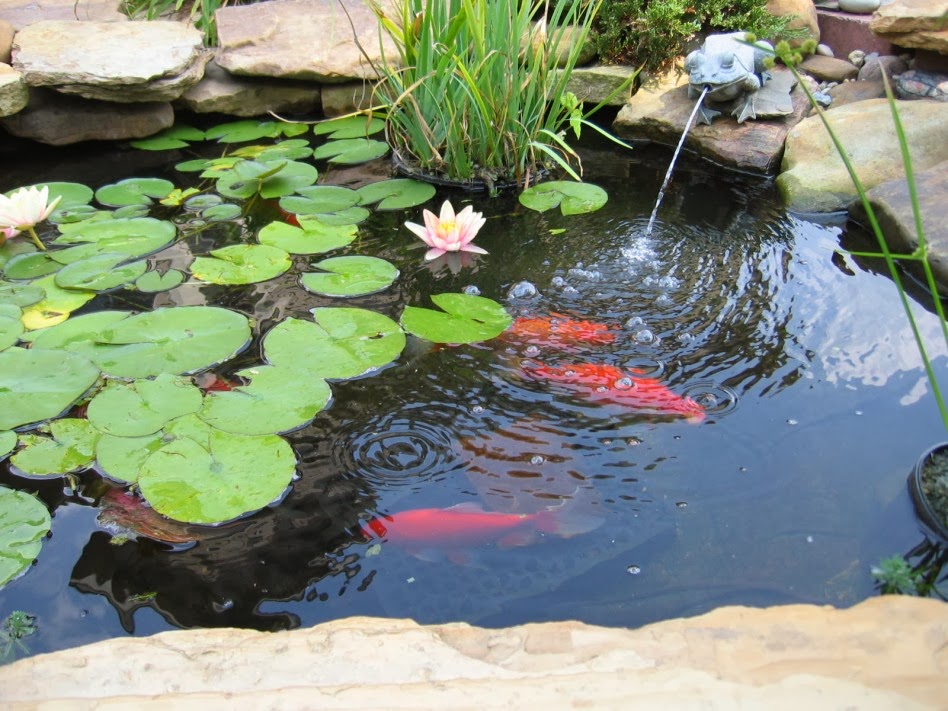
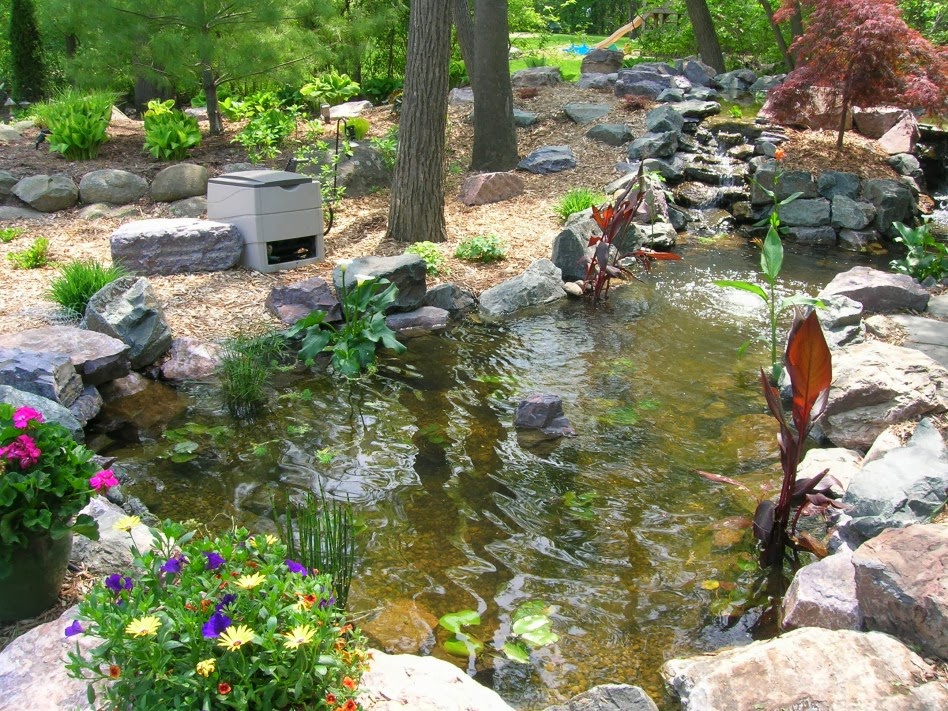

Plant care
In order not to disturb the biological balance inartificial pond, fertilize the plants less often. This will prevent a favorable environment for insects and weeds. Plants that grow entirely underwater saturate it with oxygen. Make sure that their stems do not grow too long, trim them constantly, otherwise they will spread to the surface of the pond. Be sure to monitor the leaves of the water lily. If they rise above the surface of the water, curl, it means that they are becoming cramped. In hot weather, it is not recommended to replant them, it is better to simply cut off the excess leaves. Our opinion To care for the plants, buy pond shears, pruning shears, tongs and a net: this makes it easier to get rid of wilting and brown leaves. Cut the leaves by immersing the pond shears 20-30 cm below the water level, and immediately catch them with a net and remove them from the pond.
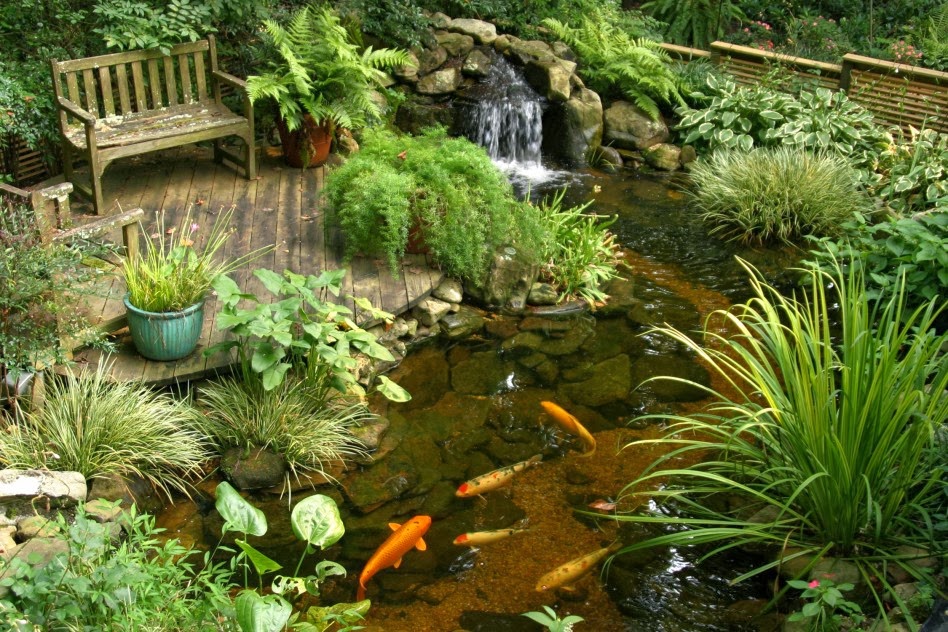
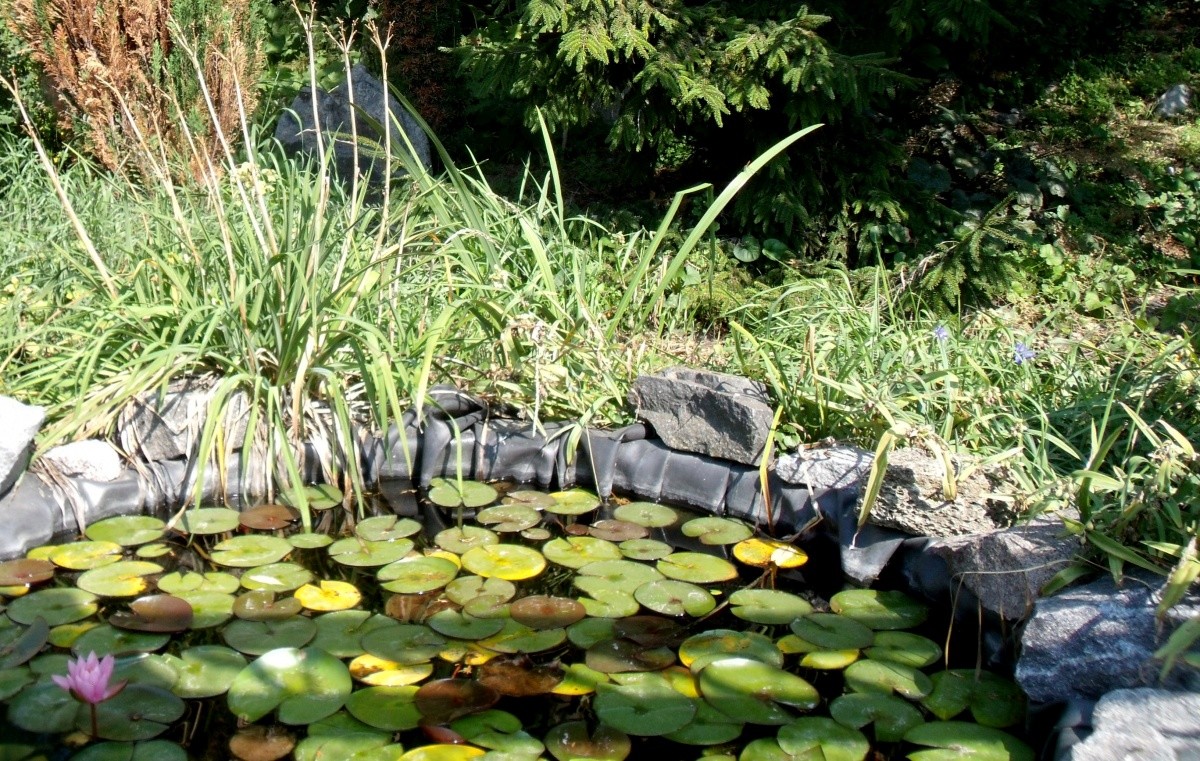 happyhomemakeruk.blogspot.com torange.us latzgardening.wordpress.com topdesigngardens.blogspot.com
happyhomemakeruk.blogspot.com torange.us latzgardening.wordpress.com topdesigngardens.blogspot.com
